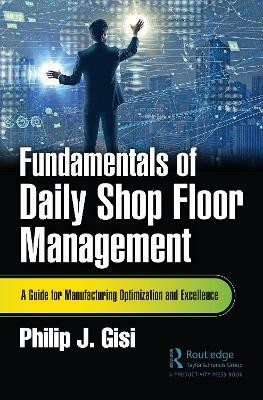Fundamentals of Daily Shop Floor Management(English, Hardcover, Gisi Philip J.)
Quick Overview
Product Price Comparison
Survival and thriving in today's business environment require companies to continuously strive for operational excellence at all levels of the organization. Simply working to maintain existing operations is not an adequate or sustainable business strategy, especially when competing in a global market. To remain relevant, companies must adopt a process control and continuous improvement mentality as an integral part of their daily work activities. These two operational disciplines form the foundation and stepping stones for manufacturing excellence. Processes must be stable, capable, and controlled as a prerequisite for sustainable improvement. Sustainable improvements must be strategic, continuous, and focused on process optimization. Modern-day manufacturing is rapidly changing in the face of technological, geopolitical, social, and environmental developments. These challenges are altering the way we think and act to transform raw materials into finished goods. Meeting these challenges requires particular attention to how we develop and engage people and apply technology for long-term sustainability and competitive advantage. This book takes you on a journey to explore the fundamental elements, management practices, improvement methods, and future direction of shop floor management. Part 1 of this five-part book considers workplace culture, organizational structure, operational discipline, and employee accountability as the foundation for a robust manufacturing system. Part 2 studies the impact of process standardization, data analytics, information sharing, communication, and people on daily shop floor management. Once the management system has been adequately described, Part 3 concentrates on its effective execution, monitoring, and control with a deep look into the people, methods, machines, materials, and environment that make it possible. Like every good manufacturing text, efficiency and productivity are key topics. That's why Part 4 explores various methods, tools, and techniques associated with product and process development, productivity improvement, agile methods, shop floor optimization, and manufacturing excellence. The final section, Part 5, shifts focus to emerging technologies, engaging the reader to contemplate technology's impact on the digital transformation of the manufacturing industry.


